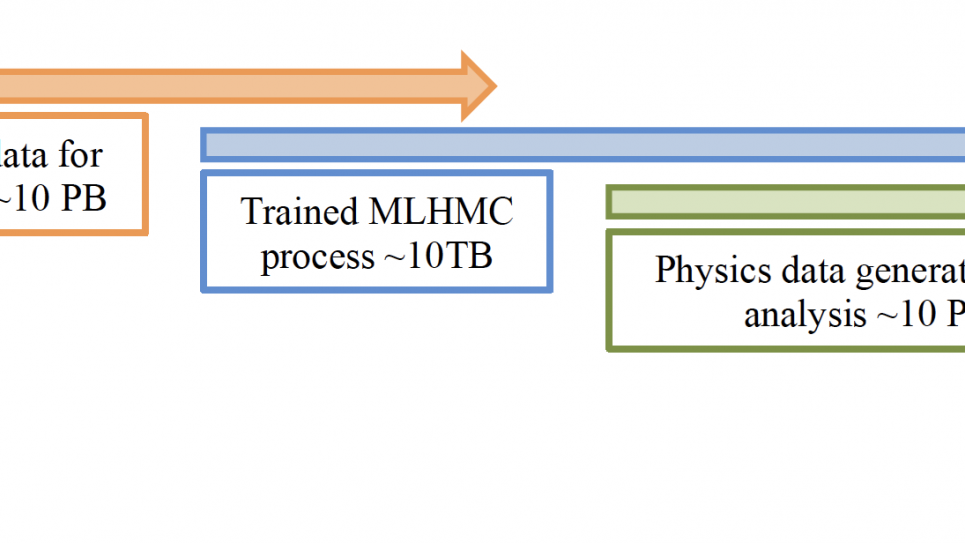
Machine Learning for Lattice Quantum Chromodynamics
Project Summary
This project will determine possible interactions between nuclei and a large class of dark matter candidate particles. By coupling advanced machine learning and state-of-the-art physics simulations, it will provide critical input for experimental searches aiming to unravel the mysteries of dark matter while simultaneously giving insight into fundamental particle physics.
Project Description
This project will achieve the first controlled first-principles determination of the possible interactions of a large class of dark matter candidate particles with nuclei. This is essential to the interpretation of direct detection experiments seeking to reveal the mysteries of dark matter and will simultaneously give insight into the emergence of the complexities of the periodic table of nuclei from our fundamental understanding of particle physics. This will be achieved by coupling new machine learning (ML) approaches with mature HPC simulations of the strong interactions using lattice quantum chromodynamics (LQCD).
With current algorithms and software frameworks, the cost to calculate dark matter interactions with the targeted nuclei is prohibitive and will not be feasible on exascale systems. The intimate coupling of three ML-based improvements into the LQCD workflow will enable the target calculations to be performed on Aurora. First, the hybrid Monte Carlo update algorithm will be accelerated by coupling to a neural network that will be trained to generate gauge representation gluon field configurations. Secondly, a deep reinforcement learning approach will be used to optimize the correlation functions used to extract physics from these configurations to maximize the statistical precision of the signals for the properties of nuclei. Finally, these optimized correlation functions will be calculated using existing multigrid solvers for lattice QCD whose many parameters will be tuned using Gaussian-process hyperparameter optimization techniques.
Project Type
Domains
Allocations